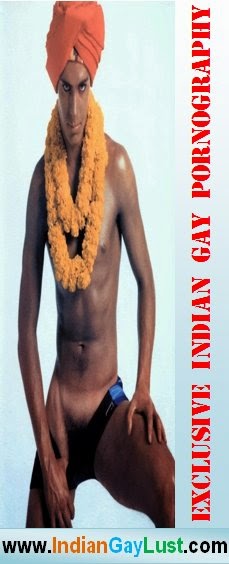Gay couples ‘marry’ with parents’ approval, havan and the works
Last week, Durban-based sales advisor Joe Singh and his partner Wesley Nolan solemnized their relationship at a ceremony where a Hindu priest officiated. In the Singh living room, Wesley tied a necklace with a Ganesha pendant around Joe’s neck. The couple, now honeymooning in Mauritius, chose the Ganesha instead of garlands because both of them are “staunch Hindus’’ and wanted the Elephant God to “ward off evil and remove obstacles from their path’’.
The grooms had sent out shimmering wedding invitations weeks in advance, had hand-embroidered shervanis shipped all the way from India, and took their vows before a havan or sacred fire. They spent 18 months preparing for their big day and Joe’s mother Rita Govender said the family had been extraordinarily supportive.
A year ago, a Mumbaibased IT professional married his white boyfriend of five years in a boisterous ceremony in Seattle. They too had the shervanis and havan. Roughly 450 people attended, many of them uncles and aunts from Mumbai. The boy’s parents initially had reservations about making their son’s sexuality public. “But by the end of it, his mother was in mother-in-law mode,’’ says one of the guests.
These happy stories may sound unbelievable given the many accounts of social hostility to gay people. But the fact is that same-sex marriage ceremonies have been performed in Indian households, rich and poor, and in cities and small towns alike. The nuptials may not have legal validity but the ritual is remarkable in a country where homosexuality is still considered a criminal act and punishable by up to 10 years in the clink. Ironically, the police cannot bust a samesex marriage because a ceremony cannot prove homosexuality as defined by Section 377 of the IPC.
An activist from Gay Bombay confirms that there are reports of unions every week, be they a lesbian couple in Punjab or Kerala or gay men in Gujarat or Delhi. Ashok Row Kavi, who opened the closet in India, says he knows several gay couples who tied the knot. “There’s one big plus-point about Hindu priests,’’ says Kavi with a straight face. “They’ll forget about everything if you show them a few bucks.’’
Same-sex marriage ceremonies are not an entirely new phenomenon, although they’ve largely stayed unnoticed. Sixteen years ago, when Aditya Advani told his parents he was gay, his mother hugged him and suggested he place a newspaper ad seeking a suitable boy. Two years later, in 1993, he brought Michael Tarr home to meet the family. It was then that Aditya complained about having to attend yet another family wedding. “I don’t know these people, why do I have to go to the wedding? They would never come to mine”. To which, his mother, a lawyer, who Aditya says “tends to shake the premise of things’’, responded, “Why not? Let’s have a ceremony for Michael and you.’’
Whose house will the baraat leave from?
In the drawing room of the Advanis’ Sundernagar home in Delhi, Aditya Advani and Michael Torr exchanged garlands and made the pheras in the presence of two bronze idols of Lord Hari Hara, a deity that represents the union of Shiva and Vishnu. The family’s spiritual mentor, Swami Bodhananda, presided over the simple but radical ceremony.
While very few parents are as liberal as Aditya’s, there are cases when even conservative mothers have come around. As happened in the case of an Indian lesbian in the US, who came out to her traditional Gujarati family. After the tears and tantrums came a grudging acceptance. “Finally, her mother told her that if she had to marry a woman, she should at least make sure she was a Gujarati girl. ‘And make sure you send her to me so I can teach her to cook the way our family does’, her mother said. She was also worried by one more question: whose house will the baraat leave from?’’ laughs an activist who knows the girl.
For San Jose residents Arvind Kumar and Ashok Jethanandani too, exchanging vows in Arvind’s brother house in Toronto was the most memorable day of their lives.
Activists say that the same-sex marriage movement has emerged independent of the other issues in the gay rights movement. Homophobia and HIV are believed to be more pressing battles. Ashok Row Kavi opposes marriage as an “oppressive heterosexual institution’’. Yet, say activists, it’s a need that can’t be wished away.
Most of the same-sex couples who have had big ceremonies live outside India in more open-minded climes like California. One of the few exceptions is the Goa-based celebrity couple of designer Wendell Rodricks and his French partner Jerome Marrel. Last year they completed 25 years together. In 2003, Wendell and Jerome signed the PACS, a French civil ceremony which though not technically a wedding gives same-sex couples rights like any other couple. Aditya and Michael were extremely lucky that their family priest, Swami Bodhananda, agreed to preside. “He thought about it for a few days, and then said he understood me and that we could have a ceremony in the presence of Lord Hari Hara,’’ says Aditya. Other gay couples have been less fortunate. “One couple had to eventually be married by a recorded tape which chanted the mantras,’’ says a Mumbai-based software engineer.
(No names have been changed)






Post a Comment